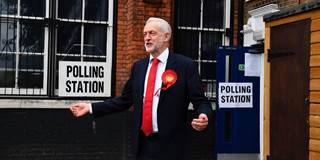The Snap Election Trap
British Prime Minister Theresa May's humiliating electoral defeat could have been predicted by a well-established psychological theory. While competent leaders have no fear that their future policies will turn off voters, insecure leaders will try to capitalize on popularity whenever they have it.
LONDON – The Conservative Party’s loss of its parliamentary majority in the United Kingdom’s snap election has proved political pundits, pollsters, and other prognosticators wrong once again. And, once again, various explanations are being offered for an outcome that few expected.



LONDON – The Conservative Party’s loss of its parliamentary majority in the United Kingdom’s snap election has proved political pundits, pollsters, and other prognosticators wrong once again. And, once again, various explanations are being offered for an outcome that few expected.